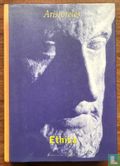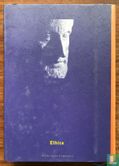The Nicomachean Ethics is one of Aristotle's most accessible texts. It is also an important work, as it is the first systematic exposition of ethics in Western philosophy. Moreover, the work is at the origin of a certain philosophical reflection, the so-called 'happiness ethic'. The work has had a profound and lasting impact. It has helped shape common beliefs about ethics. Whoever takes up Ethics will encounter familiar concepts and problems.
The Ethics is written for the adult political citizen with life experience, who needs good education to design right laws for the community. To make good laws, one needs to know the structure of the soul, to know how to attain fine character, and to understand the different types of righteousness. With these skills the politician is able to make laws that can promote the happiness of the citizens. The Ethics can therefore be regarded as a manual for future legislators and politicians.
Happiness is the main theme of Aristotelian ethics. Happiness does not consist of one element, but contains a multitude of desirable parts. In Ethics, Aristotle examines the question of what exactly happiness can be, and builds his exposition around the three types of happy life: the happiness of the pleasure person, of the citizen and of the philosopher. The formation of good qualities, both those of character and those of the mind, is the basis of Aristotle's virtue ethics. Aristotle's ethics remain firmly anchored in the practice of community life. The Ethics can be regarded as an investigation into human happiness and the means to realize this happiness.
The Ethics is the first part in the large series Aristotle in Dutch translation.
This text has been translated automatically from Dutch
Click here for the original text
De Ethica Nicomachea is een van de meest toegankelijke teksten van Aristoteles. Het is ook een belangrijk werk, want het is de eerste systematische uiteenzetting over ethiek in de westerse wijsbegeerte. Bovendien staat het werk aan de oorsprong van een bepaalde wijsgerige reflectie, de zogenaamde 'geluksethiek'. Het werk heeft een diepgaande en blijvende invloed uitgeoefend. Het heeft gangbare opvattingen over ethiek helpen vormen. Wie de Ethica ter hand neemt, zal vertrouwde begrippen en problemen ontmoeten.
De Ethica is geschreven voor de volwassen politieke burger met levenservaring, die goede vorming behoeft om juiste wetten voor de gemeenschap te ontwerpen. Om goede wetten te maken dient men de structuur van de ziel te kennen, te weten hoe men een voortreffelijk karakter verwerft, en inzicht te hebben in de verschillende types van rechtvaardigheid. Met deze vaardigheden is de politicus in staat wetten te maken die het geluk van de burgers kunnen bevorderen. De Ethica is hierom te beschouwen als een handleiding voor toekomstige wetgevers en politici.
Het geluk vormt het hoofdthema van de aristotelische ethiek. Het geluk bestaat niet uit één element, maar bevat een veelheid aan wenselijke onderdelen. In de Ethica onderzoekt Aristoteles de vraag wat geluk nu precies kan zijn, en bouwt zijn uiteenzetting op rond de drie typen van gelukkig leven: het geluk van de genotsmens, van de burger en van de filosoof. De vorming van goede eigenschappen, zowel die van het karakter als die van het verstand, ligt aan de basis van Aristoteles' deugdenethiek. De ethiek van Aristoteles blijft stevig verankerd in de praktijk van het leven in de gemeenschap. De Ethica is te beschouwen als een onderzoek naar het menselijk geluk en naar de middelen om dit geluk te realiseren.
De Ethica is het eerste deel in de grote serie Aristoteles in Nederlandse vertaling.











